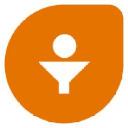Unlocking the Benefits of Banking CRM Software: The Top 7 Tools for 2024

In banking, everything revolves around customer satisfaction. Thus, it only stands to reason that having strong CRM tools is key to success. With customer-centric growth strategies being more important than ever, banking institutions ought to take a close look at customer personalization, as it could be the feature that sets them apart from the competition.
Thankfully, modern banking CRM software has this covered. Banking CRM enables financial service businesses to form individual customer profiles, anticipate customers' needs, and design segment-specific marketing campaigns. And as any banking expert knows, this is where the true competitive advantage lies. In short, banking CRM software is a powerful ally in pursuing a customer-centric growth strategy.
In the current banking CRM SaaS market, sorting through all of your options to find the best fit for your business can be intimidating. To help you make an informed decision, we listed seven of the top banking CRM tools that help you unlock the full potential of your financial services business. In this article, we are outlining the pros and cons, as well as essential features, of:
- Salesforce Sales Cloud
- ClickUp
- HubSpot CRM
- Monday.com CRM
- Freshsales
- Creatio
- Microsoft Dynamics 365
How can CRM software tools benefit banks?
If you've been questioning whether a CRM software is integral to the growth of your banking business, the answer is an unequivocal yes. In a nutshell, banking CRM helps you to obtain a 360-degree view of your customer profiles, generate detailed insights, track interactions, and monitor key data in real-time.
To be more specific, here is what makes banking CRM software such a valuable piece of technology for banks and financial service providers to enhance their customers' experience at every touchpoint:
- Improves customer relationships – CRM software lets banking professionals quickly respond to customers’ queries and requests, which helps them provide superior customer service.
- Reduces costs while saving time - Banking CRM software helps you lower operational costs as it offers tools to automate labor-intensive, mundane tasks such as data entry.
- Boosts lead generation – Specialized CRM tools give businesses a better understanding of how potential customers behave, allowing them to create targeted campaigns to convert potential customers.
- Enhances customer segmentation - CRM software tools that are customized for banking businesses help you easily identify and target different market segments, allowing for more effective marketing campaigns.
- Increases sales productivity – CRM platforms enable banking businesses to better understand their customers’ needs and preferences, which can help close deals faster.
- Improves data analysis – banking CRM tools provide insights into customer behavior, enabling your teams to make informed decisions and stay ahead of the competition.
- Streamlines banking processes – CRM software with specialized functions for the banking industry helps you automate and manage banking processes, such as loan origination and customer onboarding.
- Optimizes marketing campaigns – banking CRM tools help you create more effective campaigns by providing detailed insights into customer behavior and supporting accurate customer segmentation.
- Improves data security - banking CRM solutions offer secure data storage capabilities to ensure that your customers’ sensitive information is kept safe and secure.
- Enhances team collaboration across all your markets – CRM tools provide an efficient platform for teams to share resources, collaborate on projects, and stay connected at any place and at any time.
Salesforce Sales Cloud as Banking CRM
Salesforce Sales Cloud is a powerful CRM solution for banks and financial service businesses. It helps them build deeper relationships with customers, optimize mission-critical business processes, improve customer experiences, and digitally transform the banking customer experience. Here are some of the pros and cons of using Salesforce Sales Cloud as a CRM for banks and financial service businesses:
Pros
- Helps build deeper relationships with customers.
- Optimizes mission-critical business processes.
- Improves customer experiences.
- Digitally transforms the banking customer experience.
- Enhances client onboarding.
- Increases customer and employee engagement.
- Keeps productivity high.
- Protects operational resiliency.
- Delves into customer milestones, relationship data, preferred channels, and more.
Cons
- Can be expensive to implement in large organizations.
Key Functionalities
- Automated workflows to streamline processes.
- Advanced analytics to gain insights into customer behavior.
- Robust security features to protect sensitive data.
- Customizable dashboards for better visibility into operations.
- Mobile access for anytime, anywhere access to data.
ClickUp CRM for the Banking Sector
ClickUp is an innovative CRM tool that can be used to manage customer relationships, sales pipelines, and financial goals. It provides users with a customizable platform that allows them to plan budgets, track spending, and set financial goals. With its wide range of features and integrations, ClickUp makes it easy for banks and financial service businesses to streamline their operations.
Pros
- Easy-to-use platform.
- Intuitive user interface.
- Wide range of features and integrations.
- Live chat support.
- Connects to over 14,000 different banks and credit card companies.
- Create professional documents with ClickUp Docs.
- Automation capabilities with Wise + ClickUp integration.
Cons
- Limited customization options for some features.
- No mobile app available yet.
Key Functionalities
- Lead management.
- Customer relationship management (CRM).
- Sales pipeline management.
- Financial goal tracking.
- Budget planning.
- Spending tracking.
- Collaboration on documents such as SOPs, process wikis, idea banks, meeting notes, etc.

ClickUp
HubSpot CRM for Financial Services
HubSpot is a powerful customer relationship management (CRM) platform that helps banks and financial service businesses track and nurture leads, analyze business metrics, and more.
Pros
- Easy-to-use with intuitive user interface.
- Automates lead tracking, nurturing, scoring, and segmentation.
- Integrates with third-party applications such as Salesforce, MailChimp, Zapier, etc.
- Offers comprehensive reporting capabilities.
- Provides customizable templates to create emails quickly.
- Includes powerful analytics tools to measure performance.
Cons
- Limited customization options compared to other CRMs.
- Can be expensive depending on the chosen plan.
Key Functionalities
- Lead Management: Manage leads from multiple sources in one place. Track activity history and automate lead nurturing processes.
- Contact Management: Create detailed contact profiles with information such as job title, location, interests, etc.
- Sales Pipeline: Visualize sales pipeline stages in real-time for better forecasting. Automate tasks such as follow-ups or reminders.
- Reporting & Analytics: Measure performance with customizable reports and dashboards. Monitor team activities in detail.
Monday.com CRM for Banking
Monday.com is another recommendable CRM SaaS that can help banks and financial service businesses close deals faster and customize their customer experience. It offers a wide range of features to help teams track and manage their processes more efficiently. Monday has a strong focus on the finance industry, making it a trustworthy CRM provider for banking businesses.
Pros
- Customizable work operating system.
- Simple to set up and easy to use.
- Customizable to fit individual sales cycles.
- Mobile side-by-side drag.
- Centralized client communication.
- Help teams track and manage their sales processes more efficiently.
- Automatic finance CRM recording of incoming leads on the website.
Cons
- It might not be suitable for small businesses with a limited budget.
Key Functionalities
- Board views.
- Marketing project management.
- Email marketing campaigns.
- Task management.
- Automation capabilities.
- Project boards for team and task management.

monday CRM
Freshsales as Banking CRM
Also, Freshsales CRM is a popular choice for banking and financial service businesses. It offers a comprehensive suite of features that make it easier to manage and optimize customer relationships across the customer lifecycle and customer journey. Here are some of the top advantages and features to keep in mind when considering Freshsales as banking CRM:
Pros
- Easy-to-use interface.
- Comprehensive customer data management.
- Automated workflows for efficient customer engagement.
- Advanced reporting capabilities.
- Integrates with other banking software programs.
- functional free plan and affordable plans for small and medium-sized businesses.
- set up of access level controls to manage data access and editing options of teams.
Cons
- Limited customization options.
- No mobile app available yet.
Key Functionalities
- 360 degree view of each customer account.
- Opportunity and pipeline management.
- Lead scoring and tracking.
- Automated email campaigns.
- Advanced analytics and reporting tools.
- Customizable dashboards.

Freshsales
Creatio CRM for Banking
Creatio CRM is a no-code platform for customer relationship management. It offers a suite of high-end products for marketing, sales, and service automation to automate the entire customer journey. This makes it a solid choice for banks and financial service businesses looking to streamline their operations and follow a customer-centric growth strategy.
Pros
- Automates workflows without coding.
- Cloud-based software.
- Merges customer relationship management (CRM).
- Offers a suite of high-end products for marketing, sales, and service automation.
- Maximum degree of freedom.
Cons
- Not suitable for businesses that require complex customization options.
- Limited support options available.
Key Functionalities
Creatio CRM offers a range of features to optimize day-to-day operations of banks and financial services businesses:
- Automation of processes such as lead generation, customer onboarding, order processing, invoicing, and more.
- Integration with other systems such as ERP, accounting software, etc.
- Customizable dashboards to track performance metrics.
- Advanced analytics tools to gain insights into customer behavior.

Creatio
Microsoft Dynamics 365 as Banking CRM
Microsoft Dynamics 365 is a powerful business platform that helps banks and financial services businesses to grow faster and deliver personalized customer experiences. With Dynamics 365, businesses can manage the entire customer lifecycle and provide advanced customer service. Here are some of the pros and cons of using Microsoft Dynamics 365 for banks and financial services businesses:
Pros
- Streamlines customer relationship management.
- Enhances customer experience with 360-degree client view.
- Automates banking processes with Banking Automation Suite.
- Provides consistent, well-structured data with Banking Accelerator.
- Improves financial services operations with CRM & Analytics tools.
Cons
- Requires significant investment in implementation and training.
- Can be complex to use due to its wide range of features.
Key Functionalities
- Manage customer relationships across multiple channels.
- Track sales opportunities from lead to close.
- Monitor performance with real-time analytics & dashboards.
- Automate banking processes such as payments, transfers & reconciliations.
- Integrates with other applications such as ERP & CRM systems.

Microsoft Dynamics 365
Choosing the Right Banking CRM Solution for Your Business: Making an Informed Decision
In conclusion, businesses in the banking sector have many reputable CRM providers to choose from. Each of the 7 presented tools offer useful features and benefits that can help banking and financial service businesses to improve customer engagement, optimize sales processes and provide more reliable, customized support.
Now, choosing the right banking CRM software among the top providers may feel like a daunting task. To make the best decision, always consider your businesses' priorities to assess the most essential features for your next growth goals. In addition, make sure to read reviews from industry peers so you can be certain that the banking CRM tool you choose is right for your business. Before making a final choice, don't forget to involve your team and request a demo if possible. Get all your questions answered by the CRM providers and when something doesn't feel right, do take your time to evaluate more options. After all, investing in a banking CRM software is an invaluable decision that will undoubtedly elevate the success of your business by providing you with the tools to prioritize customer-centric growth.